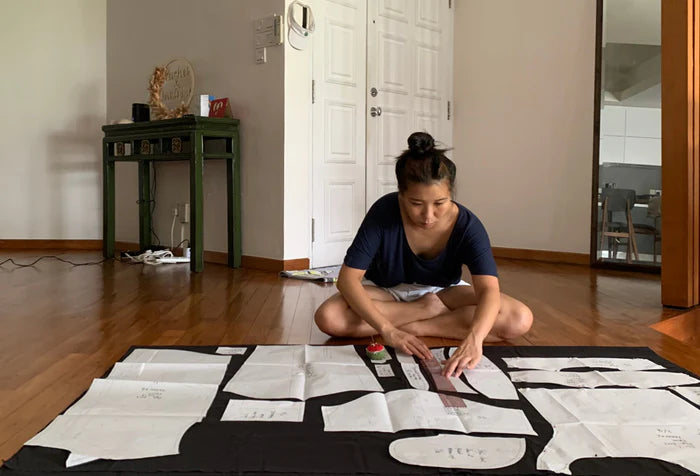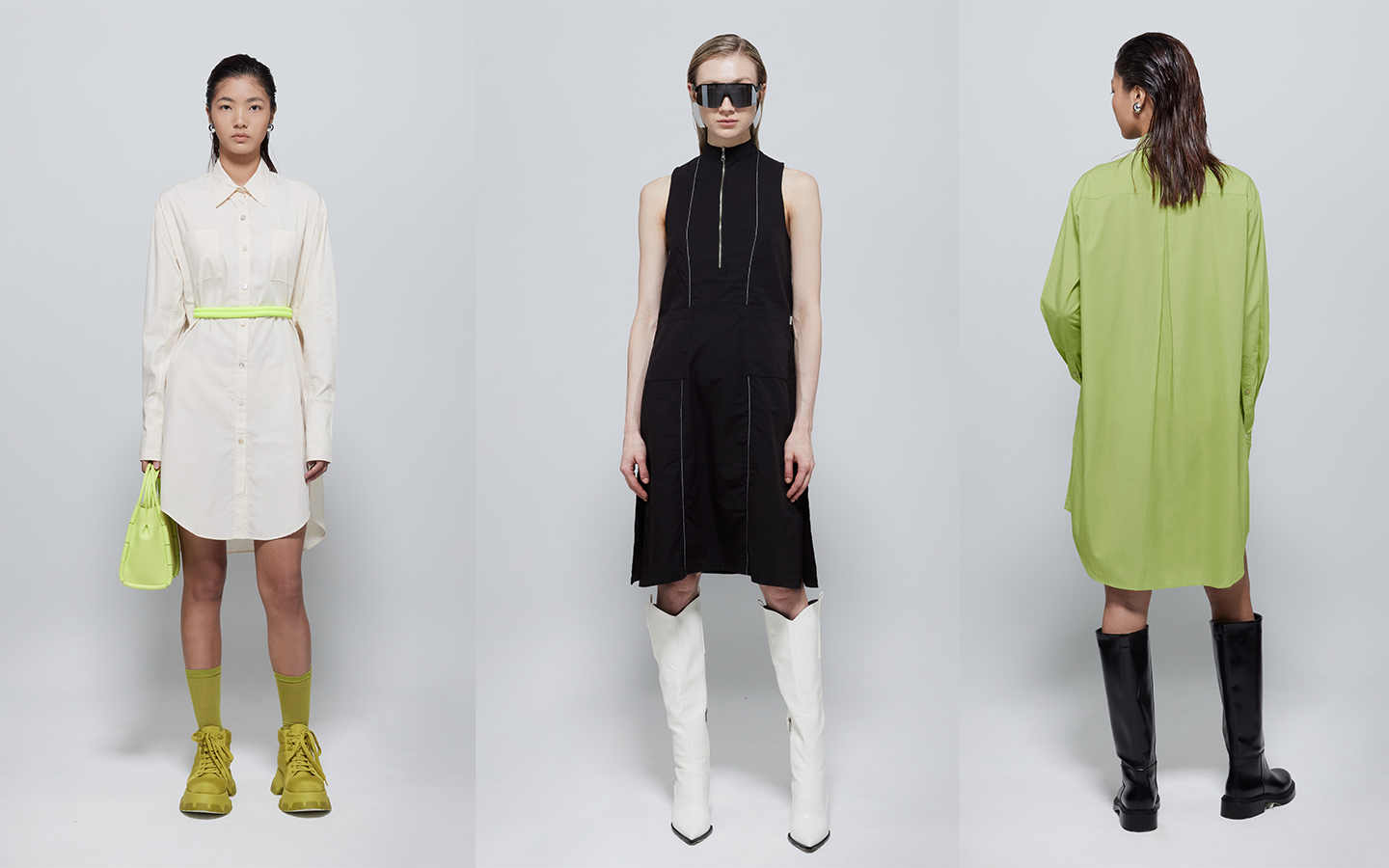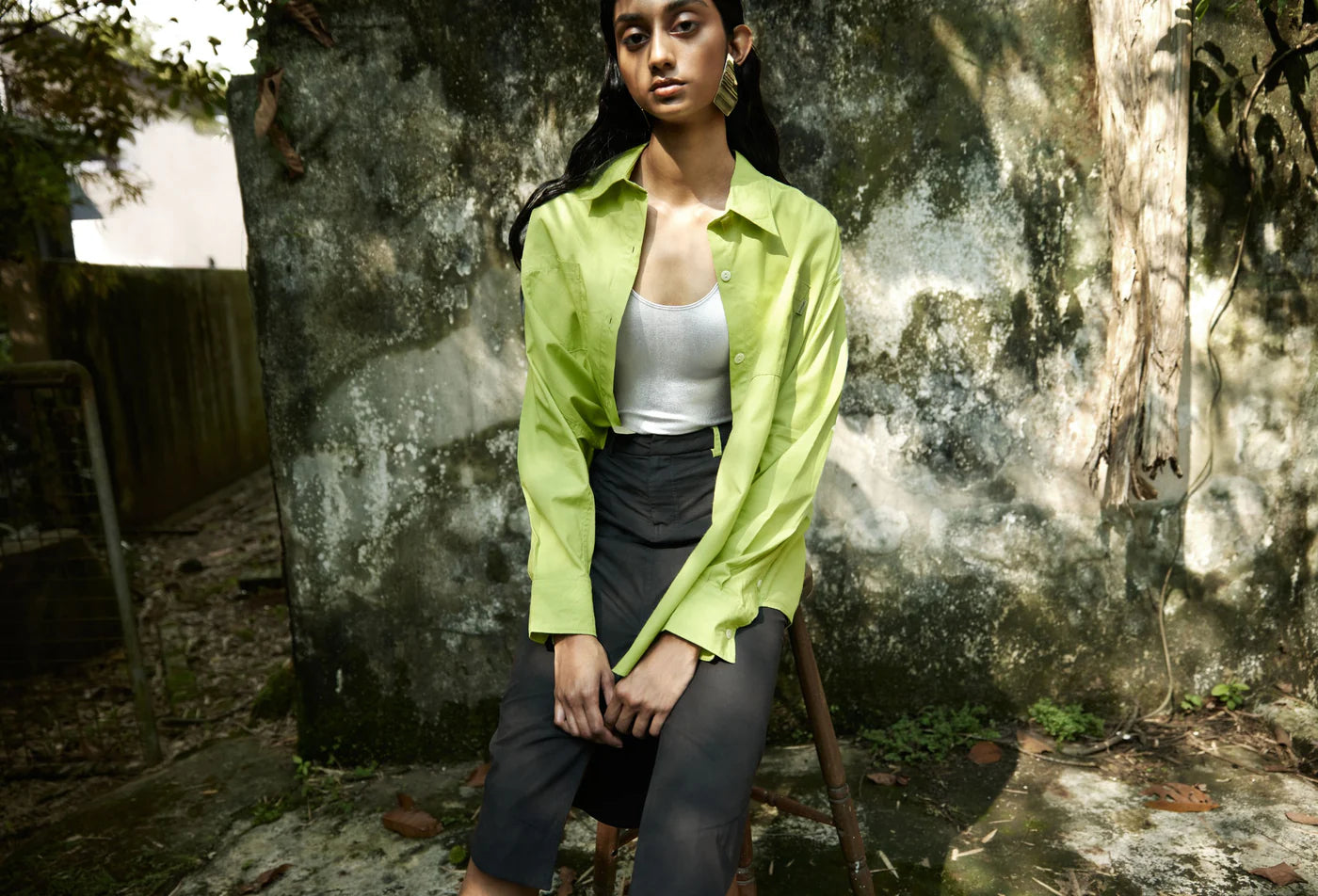
Slow Down, Fashion: How Sustainable Fashion is Shifting Mindsets
The fast fashion industry has mastered the art of perceived value, driving our pursuit of social validation, convincing us that staying on trend is essential for fitting in. It feeds on our desire to be well-liked, look good, and elevate our social status. As a result, overconsumption becomes the norm as we scramble to keep pace with every fleeting fad. Our closets morph into revolving doors, constantly churning out new outfits while discarding old ones.
Amidst this frenzy of consumption, a quiet revolution is underway—a movement that challenges the status quo and advocates for a more sustainable approach to fashion. It's a call to arms against the disposable culture perpetuated by fast fashion, urging us to slow down, consider our choices, and embrace a more mindful way of shopping.
The Fleeting Cycle of Fashion Trends
In a time of GRWMs and shopping hauls, microtrends have our full attention. As quickly as we fall in love with them, they fade to obscurity claiming the back of our closets after only a few wears. What once seemed like a revolutionary addition to our wardrobe eventually loses its appeal, replaced by the next wave of trends vying for our attention. It's time to reclaim our sense of style and mindfulness from the relentless churn of the fashion industry.
The Dark Side of Fast Fashion
Having clothes from runways turned into mass-produced, cheaply-made SKUs in fast fashion high street stores comes at a high cost to the environment and garment workers. The insatiable demand for cheap and rapidly produced clothing places an unsustainable burden on the planet's resources. From the cultivation of raw materials to energy-intensive manufacturing processes, fast fashion contributes to deforestation, water pollution, and excessive carbon emissions.
Textile Waste Pollution
The linear model of take, make, and dispose, prevalent in fast fashion, exacerbates the problem, leading to mountains of textile waste and pollution. According to NEA, a total of 254,000 tonnes of textile/leather waste was generated in 2022, of which only 2% was recycled.
One of the main culprits is the use of virgin polyester which represents 52% of all textile fibers, according to the UNCC Fashion Charter. A synthetic fibre derived from petrochemicals, polyester sheds microplastics and microfibres with every wear, wash and waste. Textile waste leaks toxic chemicals into our land and ocean that threaten ecosystems and we keep adding more and more tonnes of waste every year.
Carbon Emissions
According to McKinsey’s research, the fashion industry generated 2.1 billion metric tonnes of greenhouse gas emissions in 2018. Every phase of garment construction and transport is guilty of carbon emissions with fast fashion production networks spread across countries. McKinsey’s analysis shows that manufacturers and fibre producers can help with 60% of the abatement by decarbonising material production and processing, minimising production and manufacturing waste, and switching the renewable energy across the fashion value chain.
Human Rights and Labor Exploitation
Beyond its environmental repercussions, the dark underbelly of fast fashion extends to human rights and labour exploitation. In the race to cut costs and maximise profits, workers often find themselves trapped in subpar working conditions, devoid of fundamental labor rights. From unreasonably long working hours to inadequate safety measures, the human cost is stark. Low wages, particularly in garment-producing countries, perpetuate a cycle of poverty, leaving workers vulnerable to exploitation.
The Birth of Slow Fashion
In response to the frenetic pace and ethical shortcomings of fast fashion, slow fashion emerges as a transformative alternative. Rooted in principles of sustainability, ethical manufacturing, and a departure from the incessant churn of trends, slow fashion represents a paradigm shift in the industry. It advocates for a return to thoughtful and deliberate design processes, placing emphasis on durability, quality, and timeless aesthetics. Slow fashion serves as a counterpoint, urging both industry players and consumers to reevaluate their relationship with clothing.
The Power of Mindful Consumerism
At its core, mindful consumerism advocates for transparency, encouraging support for brands committed to ethical practices, fair labor, and eco-friendly processes. The power of mindful consumerism lies in its transformative potential, acting as a catalyst for positive change within the fashion industry. By aligning personal values with purchasing decisions, mindful consumers wield influence, pushing for a paradigm shift towards sustainability.
Their choices send a clear message—demanding an industry that prioritises ethical production, values environmental responsibility, and embraces a compassionate approach to fashion. Mindful consumers pave the way for sustainable clothing in Singapore to find its place.
Ready to get intentional about fashion? Then, its time to find brands that are truly sustainable.
What Makes A Brand Sustainable?
Among all the clothing brands in Singapore, how can you distinguish between a real green heart and greenwashing? Many brands have sustainable collections within their catalogue or refer to corporate eco-friendly efforts that have little to do with their production. Here are some things to look out for when looking for a brand that walks the talk.
Transparent and Ethical Supply Chain
A truly sustainable brand embraces transparency throughout its supply chain. Look for brands that openly share information about the sourcing of materials, production processes, and labour practices. Genuine commitment involves fair treatment of workers, ethical manufacturing, and a comprehensive understanding of the environmental impact at each stage.
Material Choices and Certifications
Sustainable materials form the bedrock of authenticity. Pay attention to brands that prioritise eco-friendly materials such as organic cotton, recycled polyester, or TENCEL™.
TENCEL™ is known by many as "the fabric of the future", as it is silky soft, luxurious, yet has high tensile strength when wet or dry, and soaks up 50% more moisture than cotton. It ticks all the boxes— biodegradable, hypoallergenic, and sustainably sourced, if it is certified TENCEL™ Lyocell. For longevity, it is less vulnerable to fading, less likely to shrink, and not prone to thinning or piling over time.
Certifications like GOTS (Global Organic Textile Standard) or OEKO-TEX also indicate a commitment to environmental and social responsibility.
Small Batch Production
Sustainable fashion brands reject mass production, opting for small-batch production. This approach ensures meticulous attention to detail and high-quality craftsmanship. It aligns with the principles of sustainable and slow fashion, encouraging thoughtful consumption. Small batches minimise environmental impact by avoiding excess inventory associated with mass production.
Hurdles in the Local Sustainability Scene
If slow fashion makes amends for the sins of fast fashion, what’s stopping brands from making more conscious business decisions? Here are some unique challenges that clothing brands in Singapore face.
The Pragmatic Singaporean
Sustainability often comes at a higher price tag. As of December 2023, 62% of Singaporeans are not willing to pay more for sustainable products (Statista, 2024). Between Shopee, Shein and blogshops, Singaporeans are spoilt for choice for low-cost and convenient options for clothes. With sustainability being a lower priority than cost-savings, sustainable fashion in Singapore has a limited market.
Reflecting the True Cost of Fashion
While consumers find it hard to understand the price tag, brands find it difficult to bring down prices. Unlike fast fashion giants, sustainable brands lack the economies of scale that drive down production costs. While fast fashion companies benefit from mass production and bulk discounts, sustainable brands prioritize ethical labor practices, premium materials like TENCEL™, and small-scale production runs to minimize waste. These factors contribute to the higher prices associated with sustainable fashion, reflecting the true labor and human costs involved in creating clothing with a conscience.
Joining the Movement: Practical Tips for Slow Fashion Adoption
Here's to the brands and movements that prove you can look good and do good. Slow fashion isn't about tossing out your entire closet—it's about getting creative with what you've got. Let's explore clever ways to maximise the lifecycle of our clothes.
Building a Capsule Wardrobe
Embark on your slow fashion journey by curating a capsule wardrobe—a thoughtfully selected collection of versatile, timeless pieces. Focus on quality over quantity, investing in well-made garments that seamlessly mix and match. Prioritise essential items that transcend seasons, offering a foundation for a myriad of stylish combinations. A capsule wardrobe not only streamlines your closet but encourages intentional choices.
Embracing Second-Hand and Vintage Finds
Explore the world of second-hand and vintage shopping as a sustainable alternative to fast fashion. Thrift stores, consignment shops, and online platforms offer a treasure trove of unique pieces with their own stories. Embracing pre-loved fashion not only reduces the demand for new production but also adds character and individuality to your wardrobe.
Get an Apparel Rental Subscription
Embracing a clothing rental subscription offers a refreshing approach to fashion that transcends the traditional cycle of wardrobe monotony. With this innovative service, you liberate yourself from the constraints of repeating outfits, allowing a dynamic and ever-evolving wardrobe that aligns with your evolving style. The beauty lies in the vast array of choices, granting access to thousands of curated pieces without the baggage of long-term commitment. It's a conscious step away from the culture of excess, allowing you to experiment with styles guilt-free. Once you've outgrown a particular look, it seamlessly makes way for the next.
Supporting Sustainable Brands
Shift your purchasing power towards supporting sustainable brands that align with your values. Prioritse those committed to ethical practices, transparent supply chains, and eco-friendly materials. Research and choose brands that actively contribute to minimising their environmental impact and champion fair labour practices. By consciously selecting sustainable brands, you contribute to a positive shift in the fashion industry, promoting a demand for ethical and eco-conscious practices.
Rock Daisy: For the Environment & For You
At Rock Daisy, we're not just crafting apparel; we're weaving a narrative of conscious style and sustainable choices. Our commitment resonates through every thread, creating a harmonious blend of fashion-forward designs and environmental stewardship, all tailored to celebrate the uniqueness of your body.
Made to Last
Rock Daisy garments are meticulously crafted with durability in mind. From double stitches to bias-bound edges and French seams, each piece is a testament to our dedication to longevity. We believe in creating timeless wardrobe essentials that transcend seasons, advocating against the throwaway culture of fast fashion. When you invest in Rock Daisy, you invest in pieces designed to withstand the test of time.
Made for the Environment
Our journey towards sustainability extends from design to production. We carefully select premium TENCEL™ fabric sourced from West Java, known for its buttery feel and moisture-wicking properties.
Our bold colours are achieved through HUNTSMAN dyestuff (Certified OEKO-TEX® Standard 100) for a vibrancy that does not pollute. Even the dye wastewater undergoes a circular treatment process. 100% of the wastewater is turned into clear drinkable water or used for subsequent dying processes.
To avoid excess inventory that will add to waste, we work with small sewing houses in West Java for small-batch production. While our apparel is on its way to you, they will come wrapped in biodegradable plastic garment bags and FSC-certified recycled paper boxes and mailers. That’s our little way of reducing packaging waste which contributes to 40% of plastic waste, according to OECD.
From the fabric choice to its production, we have considered every way to reduce carbon emissions and toxic waste.



